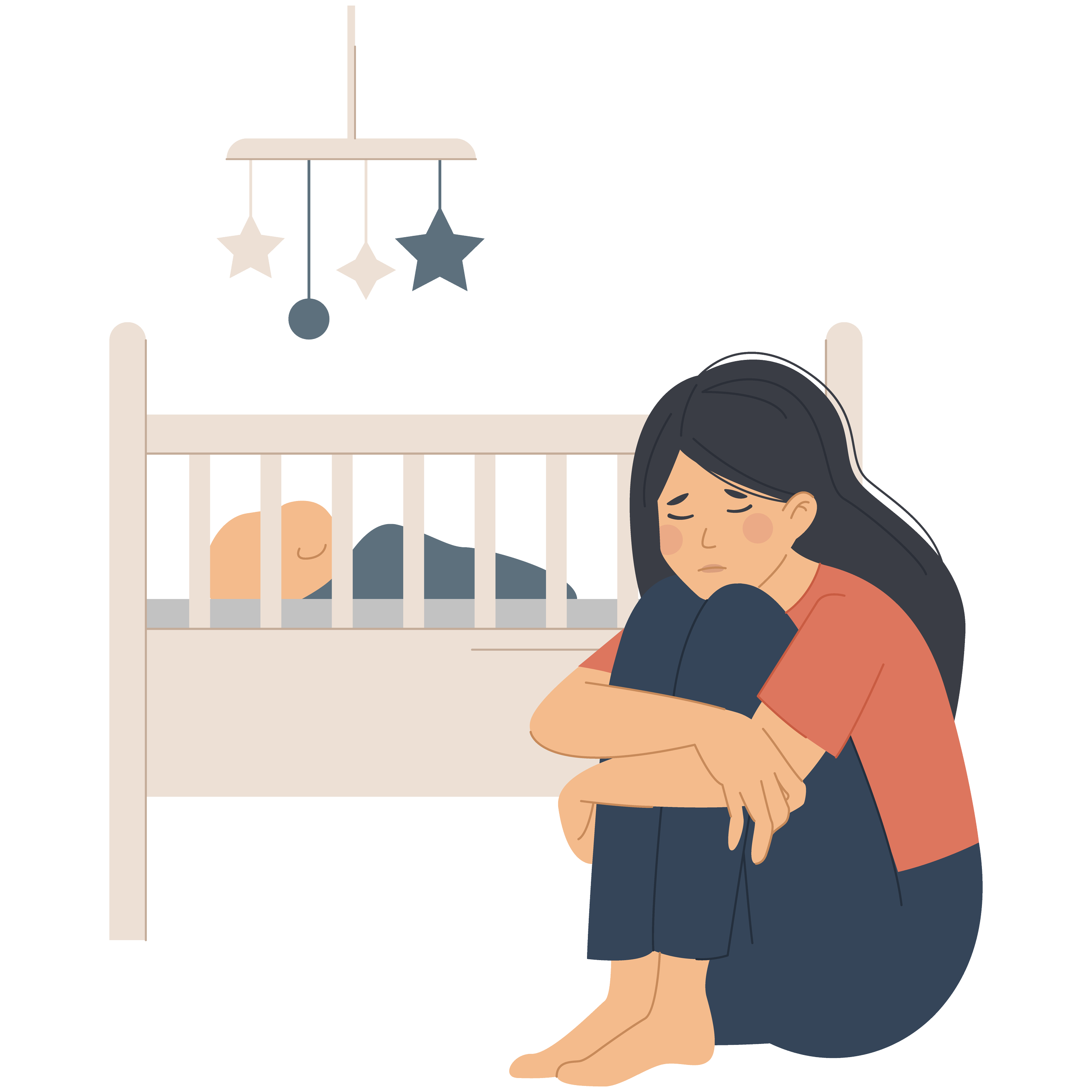Beyond Baby Blues: Recognizing and Coping with Postpartum Depression
Postpartum depression (PPD) is a serious mental health condition that can affect many new mothers. It is characterized by feelings of sadness and loneliness, along with difficulty bonding with the baby. If left untreated, PPD can lead to severe depression and other health problems, so it’s important to be aware of the signs and to seek help if you’re experiencing them.
Recognize the Signs of Postpartum Depression
It can be difficult to recognize the signs of postpartum depression because they may initially appear similar to the “baby blues” that many new mothers experience. The baby blues are a normal reaction to the physical and hormonal changes after childbirth, but PPD is different in that it is a chronic condition with long-term effects. Common signs of PPD include feelings of sadness and isolation, sleeping too much or not enough, difficulty focusing and concentrating, feeling overwhelmed and unable to cope with daily tasks, difficulty bonding with the baby, loss of appetite, and/or overeating.
Other signs of postpartum depression include:
Feelings of sadness, emptiness and/or hopelessness
Difficulty bonding with the baby
Feeling disconnected from others
Loss of interest in activities that used to bring pleasure
Extreme fatigue or exhaustion
Anxiety, irritability, anger and/or feeling overwhelmed
Eating too much or too little
Difficulty concentrating and making decisions
Thoughts of harming yourself or the baby.
Coping with Postpartum Depression
First, it’s important to speak with a healthcare provider if you are experiencing any of these symptoms to determine whether it is the baby blues or PPD. A doctor or psychologist can help diagnose PPD, which is important for determining the best course of treatment. Treatment options may include individual counseling, support groups, and/or medications.
If you are diagnosed with postpartum depression, there are steps you can take to help manage your symptoms and cope with this challenging time. It can be helpful to:
Try to to limit the stressors in your life – if you can, delegate childcare and household duties to family or friends.
Eat healthy foods
Try to make time for yourself and take care of your own needs.
Engage in activities that you find enjoyable, such as reading a book or taking a walk.
Spend some quality time with your partner or support system who can provide emotional and practical support.
Establish a good sleep routine and eat healthy meals to ensure that your body is getting the nourishment it needs.
Leaving Postpartum Depression Behind
Postpartum depression can take time to overcome, but with the right support it is possible to leave PPD behind. It is important to be patient with yourself and remember that recovery will not happen overnight. Seek professional help if needed and consider joining a support group of other mothers who are going through similar experiences. Make sure you are getting enough rest and nourishing your body with healthy foods. Exercise can also be an effective way to manage your symptoms and lift your mood. Finally, take time for yourself and connect with activities that bring you joy. With self-care, support, and treatment, it is possible to move beyond postpartum depression and reclaim your life.
Remember that postpartum depression is very common, and you are not alone. There are many resources available to help you manage your symptoms and get the treatment you need. With proper care and support, it is possible to recover fully from postpartum depression.
Are you struggling with postpartum depression or know someone who is? Groundwork Therapy is a team of licensed therapists in Brooklyn, NY who specialize in individual therapy and ground therapy for adolescents, adults, and couples. Contact us today to learn more about our services and how we can help you on your journey to recovery.

